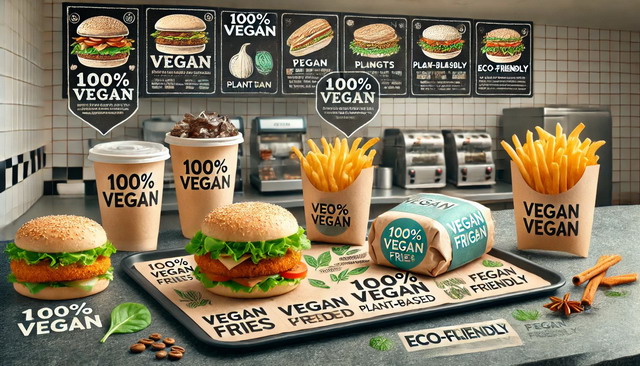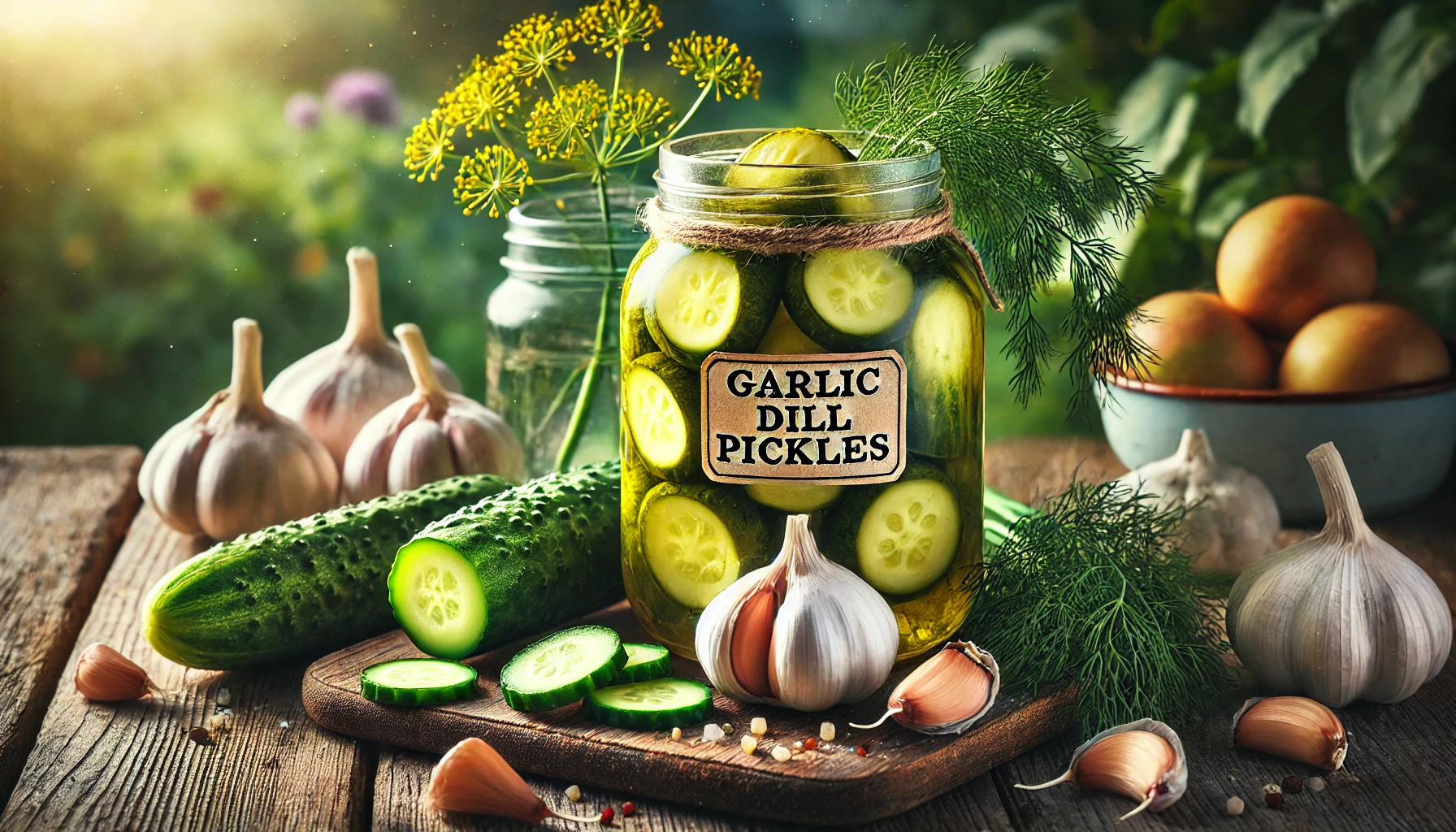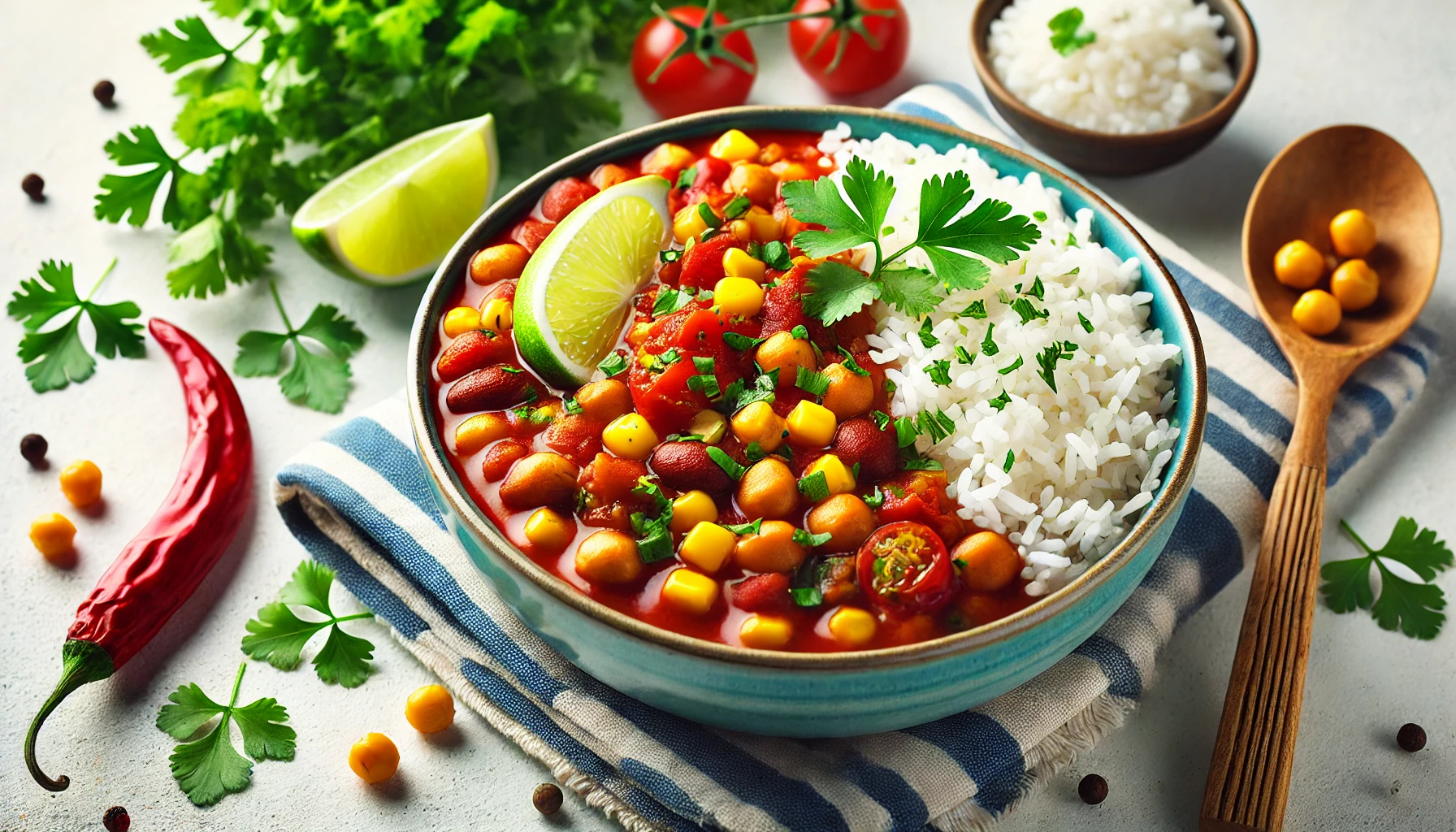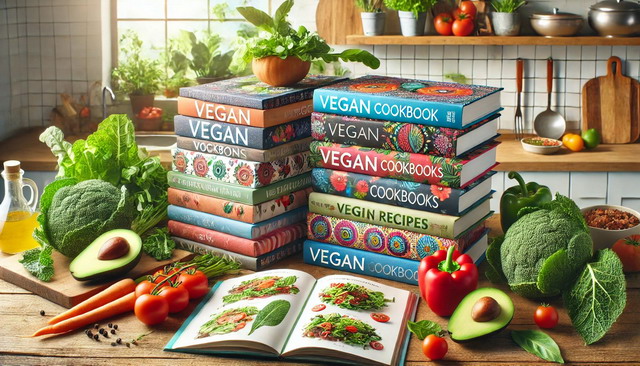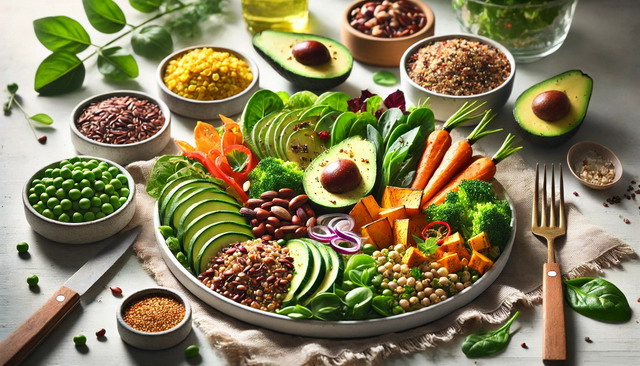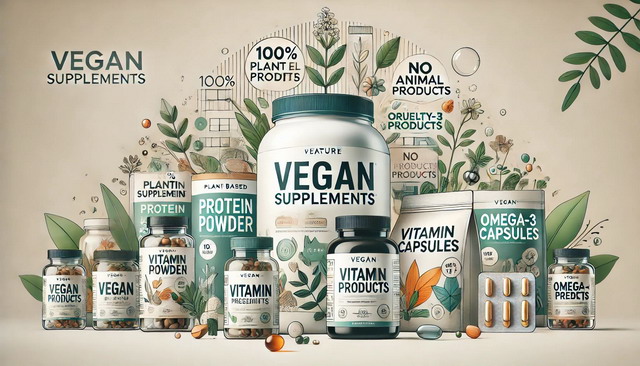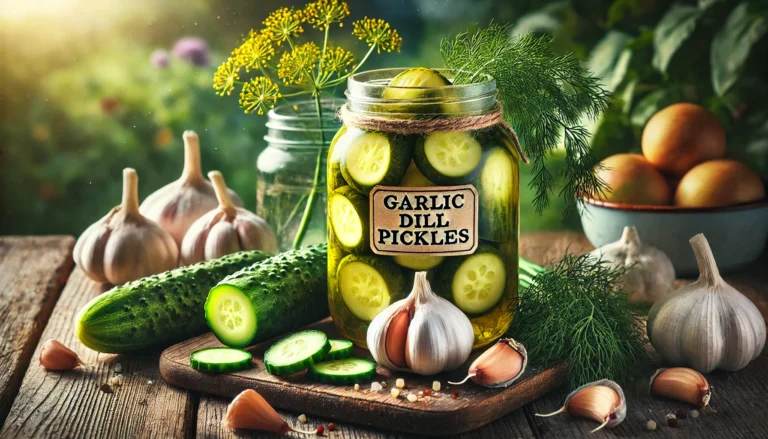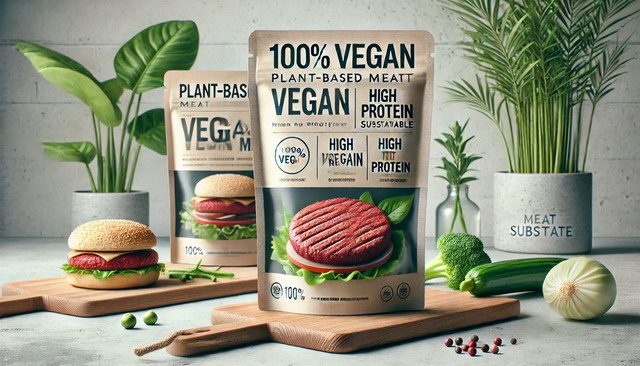The fast food landscape is undergoing a significant transformation, and at the heart of this shift is the rise of veganism. What was once considered a niche dietary choice has become a powerful movement, driven by growing consumer awareness of health, environmental, and ethical concerns. In response, fast food chains, long synonymous with meat-heavy menus, are embracing plant-based options to meet the changing demands of their customers.
In 2025, veganism is no longer a fringe trend. It’s reshaping the fast food industry in ways that were unimaginable just a few years ago. Whether driven by flexitarians reducing their meat consumption or vegans seeking convenience, the demand for plant-based meals is skyrocketing. Major fast food players like McDonald’s, Burger King, and KFC, as well as emerging vegan-only chains, are all getting in on the action, offering innovative vegan alternatives to classic fast food favorites.
This shift reflects not only changing dietary preferences but also broader societal trends. Consumers today are increasingly concerned about sustainability, animal welfare, and personal health. They’re looking for fast, convenient options that align with these values—and fast food chains are racing to meet this challenge. From plant-based burgers to dairy-free milkshakes, vegan fast food is quickly becoming a key part of the menu in fast food outlets around the world.
As we look ahead to 2025, it’s clear that the future of fast food is plant-based. This article explores the top vegan trends that are reshaping the industry, the challenges that lie ahead, and what we can expect in the years to come as fast food chains continue to embrace the plant-powered revolution.
Top Vegan Trends in Fast Food for 2025
As we move toward 2025, the fast food industry is undergoing a seismic shift in response to consumer demand for healthier, more sustainable options. The vegan trend, once a niche, has firmly entered the mainstream, with major fast food chains embracing plant-based offerings at unprecedented levels. Let’s dive into the top vegan trends that are reshaping fast food menus across the globe in 2025.
The Plant-Based Meat Revolution
One of the most significant drivers of the vegan movement in fast food has been the meteoric rise of plant-based meat alternatives. Brands like Beyond Meat and Impossible Foods have become household names, providing consumers with protein-packed substitutes that closely mimic the taste and texture of traditional beef or chicken. For fast food chains, incorporating plant-based meats into their menus has been a game-changer, allowing them to appeal to flexitarians—those who may not be strictly vegan but are reducing their meat intake.
In 2025, we are witnessing an evolution in this space. Fast food giants like McDonald’s, Burger King, and KFC have not only introduced more plant-based burgers but also expanded into plant-based chicken nuggets, sausages, and even fish alternatives. What’s different this year is the enhanced taste profiles and texture improvements, thanks to technological advancements in food science. No longer are these alternatives considered a compromise in flavor—many consumers now prefer them over traditional meat due to health and environmental benefits.
Whole-Food, Plant-Based Meals on the Rise
While plant-based meat alternatives have taken center stage, there’s another trend quietly gaining momentum: whole-food, plant-based meals. These are options that focus on minimally processed ingredients, such as grains, legumes, vegetables, nuts, and seeds, rather than engineered substitutes. Health-conscious consumers are increasingly opting for fast food meals that offer cleaner, more natural ingredients without the added fats, salts, and preservatives often found in processed foods.
Fast food chains are catching on to this shift, with many now offering hearty salads, grain bowls, and wraps that feature ingredients like quinoa, lentils, chickpeas, and fresh greens. Chipotle, for example, has introduced new bowls centered around black beans, brown rice, and roasted vegetables, while Taco Bell continues to promote its customizable, plant-forward options using beans as a protein base. This movement aligns with the growing “food as medicine” philosophy, which advocates for eating nutrient-dense foods to maintain health and prevent disease.
The Rise of Vegan Breakfast Options
Traditionally, breakfast has been one of the more challenging meals for vegans to navigate at fast food establishments. However, 2025 is changing the game. Fast food chains are now offering an array of vegan breakfast items, from dairy-free oat milk lattes to plant-based sausage and egg muffins. Brands like Dunkin’ and Starbucks have led the charge in making breakfast more accessible to vegan customers by partnering with plant-based suppliers like JUST Egg and Beyond Sausage.
As consumers continue to seek out healthier, cruelty-free breakfast options, we’re seeing a surge in vegan pastries, breakfast sandwiches, and dairy-free yogurt parfaits. These offerings cater to both the time-pressed commuter looking for convenience and the health-conscious eater who wants a nutritious start to their day.
New Dairy-Free Cheese Alternatives 2025: Delicious, Creamy, and Plant-Based
Vegan Fast Food Menu Innovations
As we continue to witness the rise of veganism, fast food chains are pushing the boundaries of what’s possible in plant-based dining. Gone are the days when a vegan fast food option was simply a side salad or a plain baked potato. In 2025, we’re seeing a surge in creativity and innovation, with fast food chains introducing a range of exciting, flavorful, and satisfying vegan options.
Plant-Based Proteins Take Center Stage
One of the most notable innovations in the fast food space is the expanding variety of plant-based proteins. While soy-based and pea protein burgers remain popular, chains are diversifying their offerings with more novel ingredients like chickpeas, lentils, quinoa, and even jackfruit. These proteins offer new textures and flavors, catering to consumers who want more than just a standard veggie burger. For example, Taco Bell has introduced a chickpea-based taco filling, while Subway has rolled out a protein-packed lentil sandwich in select markets.
Fast food chains are also experimenting with tofu and tempeh, two staples in vegan diets that have previously been overlooked by large chains. Asian-inspired chains like Panda Express have incorporated tofu into their menus, offering tofu stir-fries and bowls, while other restaurants are looking at ways to bring these ingredients into mainstream items like sandwiches and wraps. These new protein options not only appeal to vegans but also to flexitarians and health-conscious consumers who are looking for nutritious, high-protein meals without meat.
Expanding Vegan Desserts
In 2025, fast food chains are finally addressing the long-standing gap in vegan dessert options. Historically, desserts at fast food chains were heavily reliant on dairy, making it difficult for vegans to indulge. However, with the growing availability of dairy alternatives like oat milk, almond milk, and coconut cream, vegan desserts are becoming more accessible—and delicious.
From dairy-free ice cream cones at McDonald’s to plant-based milkshakes at Shake Shack, vegan desserts are now a staple on many fast food menus. Brands like Ben & Jerry’s have even partnered with fast food chains to introduce their dairy-free ice creams as a dessert option, giving vegans a wide array of choices when it comes to satisfying their sweet tooth. Additionally, baked goods such as vegan cookies, brownies, and donuts are making their way into chains like Dunkin’, allowing for a fully vegan meal experience from start to finish.
Vegan Versions of Traditional Meals
The trend of creating plant-based versions of traditional fast food staples has taken off in recent years, and it shows no signs of slowing down. In 2025, nearly every major fast food chain offers vegan versions of their classic meals. This means customers can now enjoy vegan burgers, chicken sandwiches, tacos, and even pizzas without sacrificing flavor or indulgence.
Burger King’s Impossible Whopper was one of the first major plant-based fast food offerings, and now it’s common to see vegan burgers on menus worldwide. KFC has launched a plant-based fried chicken option that mimics the taste and texture of its famous original recipe, and Domino’s offers vegan cheese and plant-based sausage as toppings on its pizzas. These innovations have helped vegan fast food move beyond just salads, making it easier for everyone—whether vegan or not—to enjoy familiar fast food favorites.
Health-Conscious Additions: Smoothies and Bowls
Another trend that has taken off in 2025 is the introduction of more health-focused vegan menu items, particularly smoothies and grain bowls. Fast food chains are now offering a variety of nutrient-dense bowls made with ingredients like quinoa, kale, sweet potatoes, and avocado, often topped with plant-based proteins. These bowls provide a filling, nutritious meal for those who want a quick and convenient option without the guilt that often comes with traditional fast food.
Smoothies have also become a popular vegan option, with chains like Jamba Juice and Starbucks offering fruit and vegetable-based drinks that can be customized with plant-based milks and protein powders. These smoothies are often marketed as a healthy alternative to sugary soft drinks, catering to a growing audience of health-conscious consumers who want a refreshing, nutritious option on the go.
In 2025, fast food chains are embracing innovation like never before, making vegan dining not just accessible but enjoyable. With diverse plant-based proteins, indulgent vegan desserts, and vegan versions of classic meals, fast food is transforming into a haven for plant-based eaters and anyone looking for healthier, cruelty-free options. The future of fast food is undeniably vegan, and the trends we see today are just the beginning of a plant-powered revolution.
Sustainability and Ethical Sourcing in Vegan Fast Food
As veganism continues to grow in popularity, fast food chains are not only adapting their menus but also reevaluating their sourcing practices. In 2025, sustainability and ethical sourcing have become central concerns for both consumers and brands. The plant-based revolution is as much about the environment as it is about health, and fast food chains are stepping up to meet these expectations.
Reducing the Carbon Footprint
One of the biggest selling points of plant-based diets is their significantly lower environmental impact compared to meat-based diets. Producing plant-based meals generally requires fewer resources, such as water and land, and results in lower greenhouse gas emissions. Fast food chains are increasingly using this as a marketing point, promoting their vegan offerings as part of their efforts to combat climate change.
Many chains are not only offering plant-based options but are also committing to reducing their overall carbon footprint. McDonald’s, for example, has pledged to reduce emissions in its supply chain, focusing on plant-based products as a way to achieve this goal. Other brands, like Subway and Chipotle, have launched campaigns highlighting how their vegan menu items contribute to sustainability. The push for plant-based food is intertwined with broader corporate sustainability efforts, and consumers are responding positively to brands that are transparent about their environmental impact.
Ethical Sourcing of Ingredients
In 2025, consumers are demanding more than just plant-based options—they want to know where their food comes from and how it was produced. Ethical sourcing has become a major trend, with fast food chains emphasizing the importance of working with suppliers who adhere to cruelty-free, fair-trade, and environmentally friendly practices.
Chains like Starbucks and Ben & Jerry’s have led the charge, with robust ethical sourcing programs that ensure their vegan ingredients are not only good for consumers but also good for the planet and the workers who produce them. These companies have made commitments to sourcing from farms that use sustainable agricultural practices, reduce pesticide use, and support fair wages for farmers. This trend is spreading to more traditional fast food chains as well, as they seek to align with consumer values in an increasingly conscientious market.
Additionally, many chains are focusing on local sourcing to reduce transportation emissions and support regional economies. By partnering with local farms for fresh produce, chains are able to offer fresher vegan options while also cutting down on their environmental impact.
Best Vegan Supplements for 2025: Boost Your Health with Plant-Based Options
The Role of Technology in Promoting Veganism
In 2025, technology plays a crucial role in promoting and enhancing the vegan fast food experience. From menu optimization to digital marketing, fast food chains are leveraging tech to reach a broader audience and meet the growing demand for plant-based options.
AI-Powered Menu Development
Artificial intelligence (AI) and machine learning have become powerful tools for fast food chains looking to improve their vegan menus. These technologies allow companies to analyze consumer data and identify trends in eating habits. By understanding what customers want, chains can create more tailored vegan offerings that appeal to a wide range of dietary preferences.
For instance, AI can analyze customer feedback to identify which vegan items are most popular, allowing chains to refine their menus accordingly. Additionally, machine learning algorithms help chains predict future trends and develop new products that are likely to resonate with consumers. This kind of data-driven innovation ensures that fast food brands can stay ahead of the curve in the rapidly evolving plant-based food landscape.
Apps and Delivery Platforms
The rise of delivery apps like Uber Eats and DoorDash has revolutionized how consumers interact with fast food, and this trend extends to vegan offerings. In 2025, many fast food chains have integrated their vegan menus into delivery apps, making it easier than ever for customers to order plant-based meals from the comfort of their homes.
Moreover, some fast food chains have developed their own apps that allow customers to customize their orders, including swapping out meat for plant-based proteins. This level of customization caters to vegans and flexitarians alike, offering a seamless experience for those looking to make healthier, cruelty-free choices.
These apps also provide valuable data that fast food chains can use to refine their vegan offerings. By tracking what customers are ordering and where demand is highest, chains can optimize their menu and delivery options to better serve the growing market for plant-based fast food.
Digital Marketing and Social Media Influence
Social media has been a driving force behind the rise of veganism, with influencers and celebrities promoting plant-based diets to millions of followers. Fast food chains have capitalized on this by partnering with vegan influencers to promote their new plant-based menu items. In 2025, digital marketing campaigns are increasingly focused on the benefits of veganism, both for personal health and the planet.
Fast food chains are using platforms like Instagram and TikTok to showcase their vegan offerings in creative ways, often highlighting how their products align with popular trends like sustainability, wellness, and ethical living. These campaigns resonate particularly well with younger consumers, who are more likely to embrace plant-based diets and make purchasing decisions based on values like sustainability and ethics.
Vegan-Friendly Fast Food Chains Leading the Charge
Several fast food chains have emerged as leaders in the plant-based revolution, setting the standard for vegan innovation in 2025. These brands are not just offering token vegan options; they are making plant-based eating a core part of their identity.
McDonald’s, Burger King, and KFC
McDonald’s, Burger King, and KFC have been pioneers in bringing plant-based meals to the mainstream. McDonald’s has expanded its McPlant range, offering plant-based versions of its classic burgers and nuggets across multiple regions. Burger King’s Impossible Whopper continues to be a best-seller, and the chain has expanded its vegan offerings with plant-based chicken nuggets and other menu items.
KFC, once synonymous with fried chicken, has also embraced the vegan trend by rolling out plant-based fried chicken that mimics the taste and texture of its iconic original recipe. These major fast food players have helped normalize vegan fast food, making it accessible to millions of people worldwide.
Dedicated Vegan Fast Food Brands
In addition to mainstream chains, dedicated vegan fast food brands are growing in popularity. Chains like Veggie Grill and Plant Power Fast Food have built their entire identity around providing high-quality, plant-based meals that appeal to vegans, vegetarians, and flexitarians alike. These chains offer a wide variety of vegan options, from burgers and sandwiches to tacos and milkshakes, and have seen rapid expansion as more consumers embrace plant-based diets.
Regional and International Chains
Beyond the big players, regional and international chains are also making waves in the vegan fast food scene. Brands like LEON in the UK and Loving Hut, an international vegan chain, have gained loyal followings by offering affordable, delicious plant-based options. These chains are proving that plant-based eating can be both convenient and flavorful, paving the way for a global shift toward vegan fast food.
The combination of sustainability efforts, technological advancements, and innovative menu offerings is pushing the fast food industry toward a more plant-based future. As major chains and dedicated vegan brands continue to lead the charge, 2025 is shaping up to be a pivotal year for vegan fast food. The movement is no longer a trend—it’s becoming a new standard in the industry.
Challenges in Vegan Fast Food Adoption
While the vegan fast food revolution is gaining momentum, it isn’t without its challenges. Fast food chains face several obstacles as they work to integrate more plant-based options into their menus. From cost issues to consumer expectations, there are a few key hurdles that companies must overcome to fully embrace the plant-based movement.
The Cost of Vegan Ingredients
One of the most significant challenges for fast food chains is the cost of sourcing high-quality vegan ingredients. While plant-based foods generally have a lower environmental impact than animal products, they can sometimes come with a higher price tag, particularly for items like specialty vegan proteins (e.g., Beyond Meat or Impossible Foods). For fast food brands that rely on low prices to attract customers, passing these costs on to consumers can be tricky.
In 2025, we are seeing fast food chains experiment with ways to lower the costs of their vegan offerings. Some companies are forming partnerships with plant-based food suppliers to secure better pricing, while others are investing in their own R&D to develop proprietary plant-based products. Additionally, as demand for vegan options continues to grow, the economies of scale are expected to improve, gradually reducing costs across the supply chain.
Consumer Expectations: Taste and Texture
Another challenge for fast food chains is meeting consumer expectations for taste and texture. While many plant-based products have come a long way in replicating the flavors and textures of meat, some consumers remain skeptical. The success of vegan fast food hinges on whether these options can satisfy the taste buds of both vegans and non-vegans alike.
To address this, fast food chains are investing heavily in research and development. Food scientists are working to create plant-based alternatives that closely mimic the experience of eating meat, with particular focus on mouthfeel, juiciness, and flavor. Chains like KFC and Burger King have already made strides in this area, but there is still room for improvement to win over the most discerning consumers.
Supply Chain Limitations
Finally, supply chain limitations can pose a challenge for fast food chains looking to expand their vegan menus. Sourcing sufficient quantities of plant-based proteins and other vegan ingredients can be difficult, particularly for global chains that need to ensure consistency across regions. Additionally, fast food chains must navigate the logistics of storing and preparing vegan items in kitchens that are also handling meat and dairy products, which can complicate the process.
In response, some fast food chains are working to develop more localized supply chains that reduce reliance on a few large suppliers. By partnering with regional producers and distributors, they can ensure a more stable supply of plant-based ingredients while also reducing their carbon footprint.
Future Predictions for Vegan Fast Food by 2030
As we look toward 2030, it’s clear that the vegan fast food trend is more than just a passing phase. In fact, many industry experts believe that plant-based eating will become a central pillar of the fast food industry in the coming decade. Several key trends and innovations are likely to shape the future of vegan fast food.
Lab-Grown Meat and Alternative Proteins
One of the most exciting developments on the horizon is the rise of lab-grown meat, also known as cultivated or cultured meat. By 2030, lab-grown meat could become a mainstream offering at fast food chains, providing an ethical and sustainable alternative to traditional animal products. This technology has the potential to revolutionize the food industry, offering the taste and texture of real meat without the environmental and ethical concerns associated with factory farming.
In addition to lab-grown meat, we can expect to see continued innovation in plant-based proteins. New alternatives, such as mycoprotein (derived from fungi) and cell-based seafood, are already being developed and tested, with the goal of providing even more options for consumers who want to reduce their meat consumption.
Entirely Vegan Fast Food Outlets
As veganism continues to grow in popularity, we may see the rise of entirely vegan fast food outlets becoming mainstream. While dedicated vegan chains like Veggie Grill and Plant Power Fast Food already exist, major fast food brands could follow suit by launching fully vegan locations or offering plant-based pop-ups in urban areas. This would allow them to experiment with new concepts and cater to the rapidly growing vegan market without alienating their traditional customer base.
The Flexitarian Influence
While veganism is a driving force behind the plant-based trend, the rise of flexitarianism—people who eat mostly plant-based but occasionally consume animal products—will also shape the future of fast food. Fast food chains will continue to expand their plant-based offerings to appeal to this demographic, providing flexible menu options that allow customers to mix and match plant-based and animal-based items. This approach will help chains cater to a broader range of dietary preferences, from strict vegans to those simply looking to reduce their meat intake.
Consumer Habits and Health Consciousness
As more consumers become aware of the health benefits of plant-based eating, fast food chains will likely place a greater emphasis on whole-food, plant-based options that go beyond meat substitutes. By 2030, we may see an increased focus on nutrient-dense meals featuring fresh vegetables, whole grains, legumes, and nuts, catering to health-conscious consumers who want fast food without the guilt.
This shift will be accompanied by a growing demand for transparency in food sourcing and nutrition. Consumers will expect fast food chains to provide detailed information about the ingredients in their vegan meals, as well as the environmental and ethical impact of their food choices.
Conclusion: The Impact of Veganism on the Future of Fast Food
As we move into 2025 and beyond, veganism is poised to reshape the fast food industry in profound ways. The growing demand for plant-based options is driving innovation, pushing fast food chains to rethink their menus, sourcing practices, and marketing strategies. From plant-based proteins and vegan desserts to sustainable sourcing and cutting-edge technology, the future of fast food is undeniably plant-powered.
Veganism is no longer a fringe movement—it is becoming a mainstream force that fast food brands cannot ignore. As more consumers prioritize health, sustainability, and ethics in their food choices, fast food chains that embrace these values will thrive in the evolving marketplace. While challenges remain, the future of vegan fast food is bright, with endless possibilities for growth, innovation, and delicious, plant-based meals that appeal to all.
By 2030, we could very well see a world where vegan fast food is the norm, not the exception.
